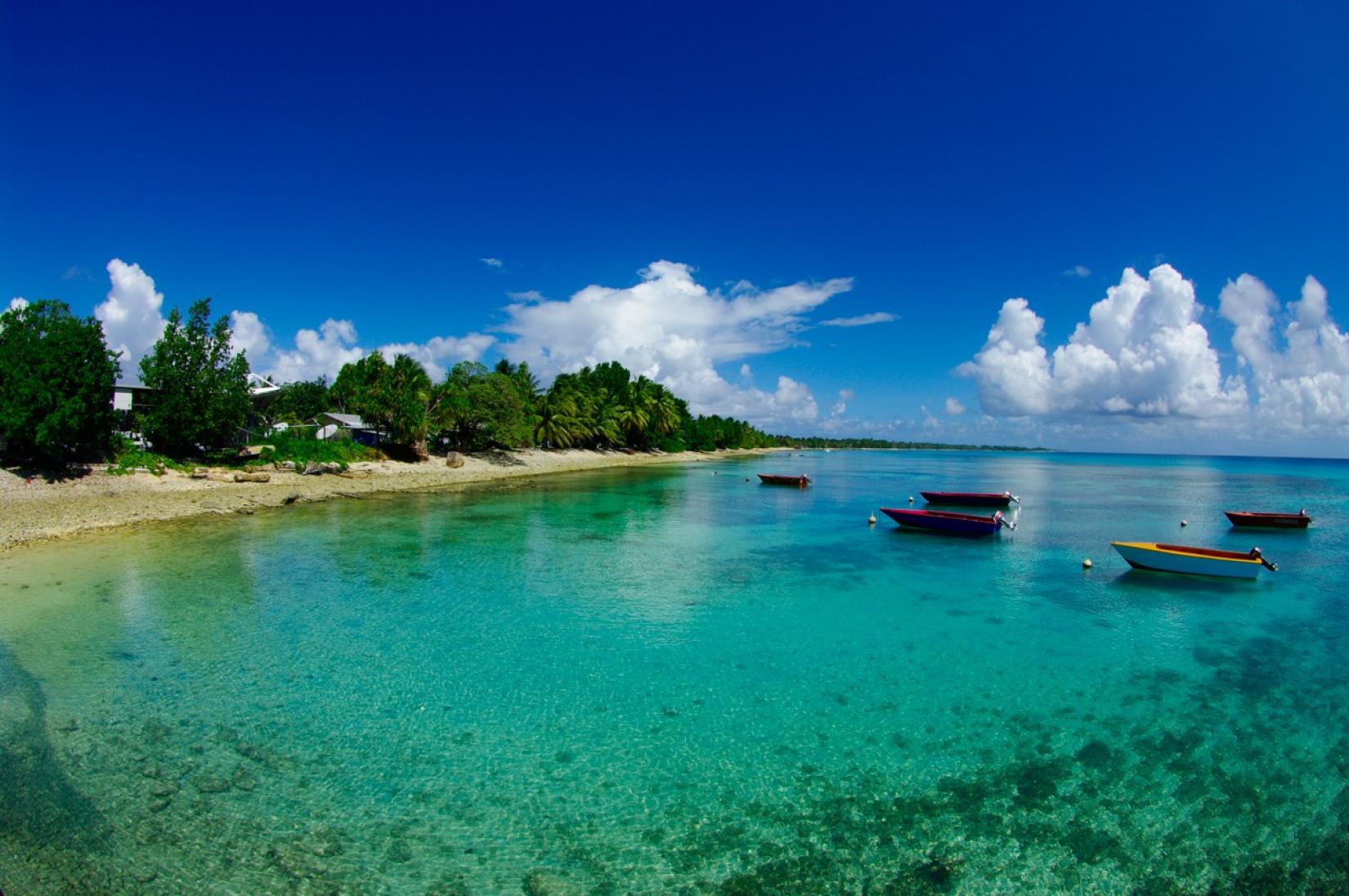Tuvalu
Tuvalu is a Polynesian island country, comprising nine dispersed, low-lying islets and atolls in the South Pacific Ocean. It is the 4th smallest country in the world with 26 km2 of land across nearly a million km2 of exclusive economic zone (EEZ). More than half of Tuvalu’s 11,396[1] population live on Funafuti, the main island.
[1] World Bank. 2023. Population, total.

According to the World Bank's classification, Tuvalu is an upper-middle-income country[1], and its economic development level is above the regional average. Poverty has increased in the last decade, particularly in urban areas. Tuvalu has few exports and depends on revenues from fishing license fees, overseas remittances, dividends from the Tuvalu Trust Fund, and income from rent of the “dot tv” Internet extension.
Most of the islands are built on coral and are not suitable for crop production beyond household needs. Inter-island transport is erratic and expensive, reducing opportunities to source perishable foods from outer islands and increasing dependence on imported foods.[2] Rates of adult overweight and associated non-communicable diseases are a significant public health concern in Tuvalu. Among adults aged 18–69 years, it is estimated that 55.2% of males and 70.7% of females are obese.[3]
Due to its low-lying geography, Tuvalu is at acute risk from natural disasters, including rising storm surges, cyclones, and tsunamis. Seawater infiltration has increased soil salinity, and ocean acidification has affected coral ecosystems. The country is also at risk of drought and extreme heat.
Despite ratifying The Convention on the Elimination of all Forms of Discrimination Against Women, the participation of women in the labor force has seen a decline, dropping from 51% in 2012 to approximately 40% in 2017. The national election in Tuvalu, conducted in January 2024, resulted in a parliament devoid of women's representation, with only one woman contesting unsuccessfully. More than one-third of ever-married women (41%) have experienced violence (physical, sexual or emotional) by a husband or other intimate partner.[4]
Current data indicates that Tuvalu will miss the targets of the 2030 Agenda for Sustainable Development. While there has been progress, many Sustainable Development Goals (SDGs) are significantly off track, with decreasing trends in SDG 2, Zero Hunger.[5]
Development goals and objectives
The UN has been present in Tuvalu since 2000. The United Nations Pacific Sustainable Development Framework 2023-2027 outlines the UN’s development priorities and localized responses in 14 Pacific Island countries and territories, including Tuvalu, to advance the global 2030 Agenda for Sustainable Development. The UN Pacific Sustainable Development Framework complements Tuvalu’s Te Kete: National Strategy for Sustainable Development 2021-2030; particularly in the areas of environment and natural resource management, economic growth and stability, migration and urbanisation, education, and governance.
[1] World Bank. World Bank Country and Lending Group. https://datahelpdesk.worldbank.org/knowledgebase/articles/906519-world-….
[2] International Fund for Agricultural Development (IFAD) and FAO. 3 September 2019. Proposal for GAFSP Financing: Small Islands Food and Water Project (SIFWaP). Project Proposal for the North Pacific Federated States of Micronesia, Kiribati, Republic of the Marshall Islands and Tuvalu.
[3] Government of Tuvalu. 2015. Tuvalu STEPS Survey. Central Statistics Division.
[4] Ibid.
[5] Sachs, J.D., Lafortune, G., Fuller, G. (2024). The SDGs and the UN Summit of the Future. Sustainable Development Report 2024. Paris: SDSN, Dublin: Dublin University Press. 10.25546/108572

